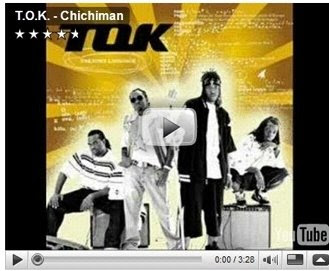Straight people should be fighting to end homophobia because of the damage done by beliefs about how a “real man” is expected to behave.
For example, a school youth invites homophobic bullying if he is polite and considerate, respects his parents, attends to his lessons, gets good grades, dresses neatly, shows an interest in arts and culture, and is still a virgin in Grade 8 let alone 10. In particular, he risks being called a sissy if he shows emotion – he is expected to “man up” even under trauma.
So a savvy youth – straight or gay – will find ways to avoid the bullying. He will be crude and disrespectful, under-perform at school, support the violent and abusive elements in our culture, and sleep with (or pretend to sleep with) a growing list of females. Naturally he shows no emotion; he mostly deals with stress by smoking a ganja spliff or engaging in high-risk behavior such as unsafe sex or fast driving. To protect his macho reputation, he develops only superficial relationships with males.
For the youth who is in conflict with his same-sex inclination, the disguise is complete when he joins in bullying those alleged to be gay.
The adult male risks being considered gay if he values books apart from those needed for his faith or his job, and if he speaks as if he is widely read and able to think critically. He can be labelled gay if he is nurturing and considerate (especially to women), seems sexually responsible, and has non-sexual friendships with women. He will know better than to show physical affection to his son, or to have male bonding activities (apart from sports) with male friends or relatives. Too often, he affirms his macho identity in domestic violence, serial infidelity, unplanned fatherhood and other anti-social behaviour. No matter what, the behaviour of the “real man” must be the antithesis of all that is feminine.
The closeted gay male can divert attention from his sexual orientation by adopting cultural norms for the way a “‘real man” behaves. A straight woman trapped in a marriage with a closeted gay male can expect mixed messages and hidden resentment from someone in denial or unable to disclose his true identity. Sex will be sporadic if at all, and absence of emotional connection can make the wife mentally or physically ill. If the male meets his sexual needs on the “down low”, the wife risks contracting HIV.
The society is in trouble when being intelligent, law-abiding, and able to show appropriate emotion is seen as gay, and where gay men are forced to live a lie for the sake of survival. The distorted image of the “real man” may well be contributing to rising violence against women, increasing alienation of young males from academic pursuits, increasing marital failure, rising use of illegal drugs, and increasing violent death or incarceration of males. The recent mob violence toward a gay man on the UTech campus could well be related to the student mob’s perception of what it means to be a “real man”.
Straight people need to begin to see that their self-interest requires an end to the distortion of masculinity that prevails in a homophobic society.
Yours truly,
Yvonne McCalla Sobers
About Yvonne McCalla-Sobers
Geoffrey Philp’s Blog Spot receives a percentage of the purchase price on anything you buy through links to Amazon, Shambala Books, Hay House, or any of the Google ads or Google Custom Search.
Disclaimer of Endorsement
The documents posted on this Web site may contain hypertext links or pointers to information created and maintained by other public and private organizations. These links and pointers are provided for visitors' convenience. I do not control or guarantee the accuracy, relevance, timeliness, or completeness of any linked information. Further, the inclusion of links or pointers to other Web sites or agencies is not intended to assign importance to those sites and the information contained therein, nor is it intended to endorse, recommend, or favor any views expressed, or commercial products or services offered on these outside sites, or the organizations sponsoring the sites, by trade name, trademark, manufacture, or otherwise.
Reference in this Web site to any specific commercial products, processes, or services, or the use of any trade, firm or corporation name is for the information and convenience of the site's visitors, and does not constitute endorsement, recommendation, or favoring by this blog.









